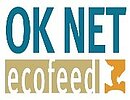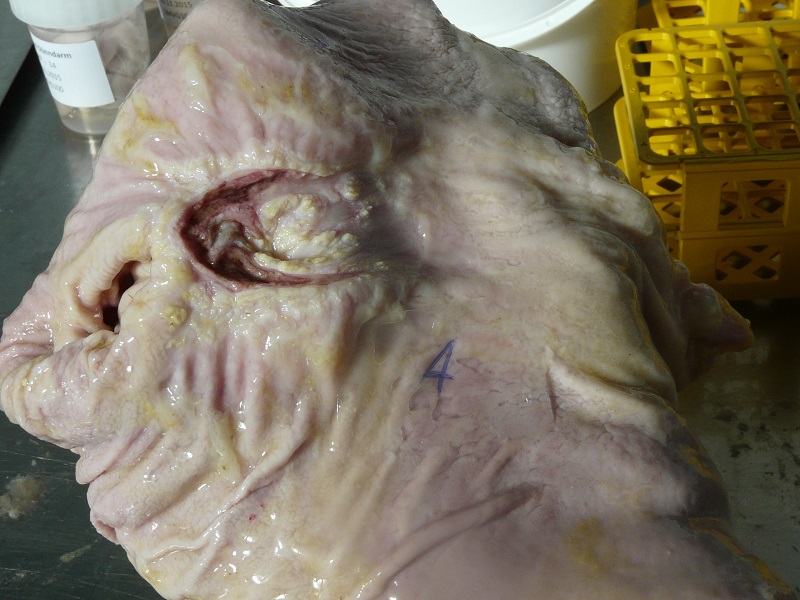Alimentation des porcs en engraissement avec de l'ensilage d'herbe
Problème
Les systèmes de production actuels compromettent la santé et le bien-être des porcs en raison du manque de composants alimentaires structurels, associé au développement d'ulcères gastriques.
Solution
Une alimentation comprenant du fourrage grossier, comme de l'ensilage d'herbe, améliore la santé intestinale des porcs.
Benefits
Une réduction des ulcères gastriques entraîne une amélioration du bien-être des animaux. De plus, les fourrages grossiers, tels que l'ensilage d'herbe, peuvent satisfaire le besoin de fouissage des porcs et réduire les morsures de queue. Par ailleurs, les porcs sont occupés à s'alimenter durant de plus longues périodes, ce qui réduit leur ennui. L'ensilage d'herbe a une bonne valeur nutritive : c'est donc un complément idéal pour les aliments concentrés.
Applicability box
Geographical coverage
Tous pays
Application time
A tout moment
Required time
Temps consacré à l’alimentation des porcs
Period of impact
Immédiat
Equipment
Pas d’équipement spécifique nécessaire
Best in
Porcs en engraissement
Practical Recommendations
• Fournir quotidiennement du fourrage grossier aux porcs en engraissement (minimum 100 à 300 g de MS par porc chaque jour).
• L'ensilage d'herbe est un fourrage idéal : il est très appétent pour les porcs en raison de son goût et de sa consistance. L'ensilage d'herbe, l'herbe, le foin et d'autres types d'ensilages ont des effets comparables sur la santé et le bien-être.
• Pour éviter le gaspillage des aliments et assurer un bon accès, disposer les aliments dans des auges à une hauteur optimale.
• Placer les auges loin des zones de repos afin d'éviter les perturbations.
Further information
Video- La vidéo “Feeding pigs: effect of silage“ est disponible sur la plateforme Organic Farm Knowledge.
Reading
- Früh, Barbara and Mirjam Holinger (2019) Organic Pig Farming: Key Characteristics, Opportunities, Advantages and Challenges. In: Improving Organic Animal Farming. Burleigh Dodds Series in Agricultural Science, pp. 287– 306., doi:10.19103/as.2017.0028.16
- Holinger, Mirjam et al. (2018) Long-Term Effects of Castration, Chronic Intermittent Social Stress, Provision of Grass Silage and Their Interactions on Performance and Meat and Adipose Tissue Properties in Growing-Finishing Pigs. In: Meat Science, vol. 145, 2018, pp. 40–50., doi:10.1016/j.meatsci.2018.05.018
- Holinger, Mirjam et al. (2018) Grass Silage for Growing-Finishing Pigs in Addition to Straw Bedding: Effects on Behaviour and Gastric Health. In: Livestock Science, vol. 218, 2018, pp. 50–57., doi:10.1016/j.livsci.2018.10.012
- Research Institute of Organic Agriculture – FiBL (2019) Feeding Pigs: Effect of Silage. Video. Research Institute of Organic Agriculture (FiBL), Frick. Available at organic-farmknowledge.org/tool/35301
- Holinger, Mirjam et al. (2015) Improving Heal and Welfare of Pigs - A Handbook for Organic Pig Farmers. Research Institute of Organic Agriculture - FiBL, 2015, organic-farmknowledge.org/tool/35307
- Des documents complémentaires sont disponibles sur Organic Farm Knowledge website.
About this practice abstract and OK-Net EcoFeed
Publishers:Research Institute of Organic Agriculture (FiBL),
CH5070Frick,
Phone +41 62 865 72 72,
info.suisse@fibl.org,
www.fibl.orgIFOAM Organics Europe,
BE1000Brussels,
Phone +32 2 280 12 23,
www.organicseurope.bio,
www.organicseurope.bio
Editing and translation: , Stanislas Lubac, ITAB (contact : antoine.roinsard@itab.asso.fr)
Contact: mirjam.holinger@fibl.org
https://orgprints.org/view/projects/OKNetEcoFeed.html
This practice abstract was elaborated in the Organic Knowledge Network on Monogastric Animal Feed project. The project is running from January 2018 to December 2020. The overall aim of OKNet EcoFeed is to help farmers, breeders and the organic feed processing industry in achieving the goal of 100% use of organic and regional feed for monogastrics.
Project website: https://ok-net-ecofeed.eu/
IFOAM Organics Europe (project coordinator), BE; Aarhus University (ICROFS), DK; Organic Research Centre (ORC), UK; Institut Technique de l'Agriculture Biologique (ITAB), FR; Research Institute of Organic Agriculture (FiBL), CH; Bioland, DE; Associazione Italiana perl'Agricoltura Biologica (AIAB), IT; Donau Soja DS, AT; Swedish University of Agricultural Sciences, SE; ECOVALIA, ES; Soil Association, UK.




This project has received funding from the European Union’s Horizon 2020 research and innovation programme under grant agreement No 773911. This communication only reflects the author’s view. The Research Executive Agency is not responsible for any use that may be made of the information provided. The authors and editors do not assume responsibility or liability for any possible factual inaccuracies or damage resulting from the application of the recommendations in this practice abstract

